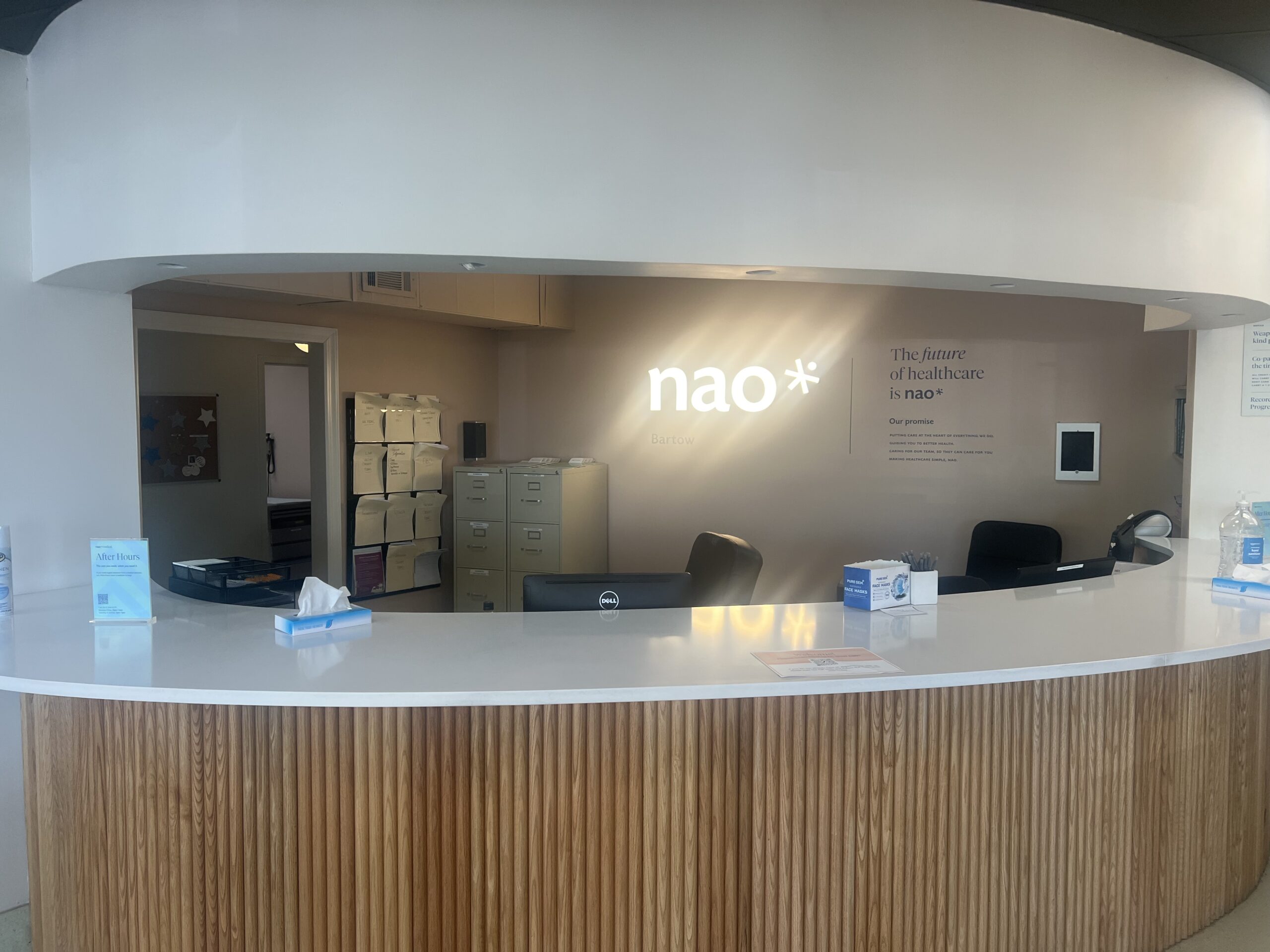Food choices are important solely for our physical health, right? Wrong. Current research demonstrates that the food we eat impacts our mental health in addition to influencing our waistlines.
It’s estimated that 1 in 5 adults in the United States struggles with mental health concerns. While this is a complex subject and is driven by numerous factors, mounting evidence establishes that food also plays a role in our mood, emotions, and overall mental health.
While there’s still much to discover about the underlying relationship between food and mental health, what’s known is that certain types of nutrients and dietary patterns help support mental status. For instance, frequently consuming various foods like fruits, vegetables, protein, and whole grains are known to be beneficial to a person’s emotional, psychological, and social well-being.
Here are five types of foods you can add to your diet right now to help improve your mood, ease your anxiety, and lower your stress. Oh, and did I mention, they’re all delicious?
1. Magnesium
Magnesium is an essential mineral involved in many functions within the central nervous system. Extensive research has found magnesium to be an important factor in neurological and psychiatric diseases. Furthermore, studies suggest that, for adults seen in primary care, lower serum magnesium levels were associated with depressive symptoms. So, what foods contain magnesium?
Magnesium-rich foods are found in many nonperishable and affordable foods, such as:
- Legumes
A 1-cup serving of black beans contains 120 mg of magnesium, which is 29% of the Daily Value. These are high in potassium, iron, and fiber. Black beans and other legumes can be eaten as a snack, meal, or even added to baked goods (hello black bean brownies). - Seeds
Another excellent source of magnesium are seeds, like chia, flax, and pumpkin. A 1-ounce serving of pumpkin seeds contains an impressive 168 mg of magnesium, amounting to 40% of the DV. That’s almost half of your daily magnesium needs right there! Try adding these seeds to yogurt, oatmeal, or as a salad topping for an added crunch of delicious, mood-elevating nutrients.
*Daily Value or DV refers to how much of a nutrient you should aim to consume per day based on a 2000-calorie diet
2. Carotenoids
Ever wonder where fruits and vegetables get their brightly colored yellow, red, orange, blue, and green hues? Thanks to carotenoids, the pigments found in plant foods, we can truly “eat the rainbow.”
There are over 600 different types of carotenoids that act as an antioxidant in the body. Research shows that individuals with low plasma concentrations of carotenoids have more depressive symptoms than those within normal ranges. Another study found total carotenoid intake to be inversely associated with the risk of depressive symptoms in US adults, meaning the higher the concentration of carotenoids, the lower the risk of depression.
As an antioxidant, carotenoids protect our cells from free radicals or other substances that can damage our cell membrane. Frequent consumption of carotenoid-rich fruits and vegetables not only helps with mental health but also reduces the risk of developing several chronic diseases, including diabetes and hypertension.
What are some delicious carotenoids you can add to your daily meals?
- Bell peppers
- Carrots
- Mangoes
- Spinach
- Yams
- Red and black grapes
- Watermelon
- Pomegranates
- Pumpkin
Anything brightly colored adds fun, flavor, and powerful nutrients that will help chase away depression. Aim to consume at least 3-5 servings of fruits and vegetables per day to reap the innumerable physical and mental health benefits of carotenoids.
3. Omega-3
Omega-3s are essential fatty acids that your body can’t produce, therefore, they must
be consumed in the diet. Experts recommend getting omega-3s from your diet is recommended before going the supplement route, as whole food sources also contain protein, vitamins, and minerals.
Studies show that consuming at least one serving of omega-3-rich food per week, or 500mg of omega-3 fatty acids per day, was associated with a lower risk of depression, especially in women. Additional research suggests that frequent omega-3 consumption could boost mood and reduce symptoms of anxiety. Regularly eating omega-3-rich foods also helps reduce inflammation, lower triglycerides, and improve skin health.
The main biologically active sources of omega-3 are present
in:
- Tuna
- Salmon
- Herring
- Trout
- Sardines
- Fish oil supplements
If fish isn’t your thing, don’t worry. Omega 3 is also found in:
- Walnuts
- Chia seeds
- Flax seeds
- Edamame
- Seaweed
4. Folate
Folate is a water-soluble B vitamin, and folic acid is the synthetic version of folate. It’s needed in the brain for the synthesis of hormones, such as dopamine, serotonin, and norepinephrine. All of which affect mood. Research demonstrates that individuals with depression had lower blood folate levels than those without depressive symptoms.
Food that naturally contains folate:
- Dark leafy green vegetables (spinach and kale)
- Citrus fruits
- Eggs
- Legumes
Food fortified with folic acid:
- Nutrient-enriched bread
- Cereals
- Flour
- Dietary supplements.
Our bodies cannot make folate so we must obtain it through the food we eat. The recommended dosage of folates for adults is 400 mcg per day. You can meet half of your folate needs in a single meal.
Eat one cup of cooked kidney beans, which contains 131 mcg of folate, or 33% of the DV, with half a cup of cooked broccoli, which provides 84 mcg, or 21% of the DV. That combination alone provides over 50% of your daily folate needs! Bonus points if you pair it with a piece of omega-3-rich fish.
By eating a variety of fruits, vegetables, nuts, and seeds, as well as fortified foods, you can easily meet your folate needs. These foods are also rich in other nutrients that contribute to mental health.
5. Probiotics
Did you know that the gut and brain are connected? Research shows that an axis exists between the two and they are in constant communication. The gut has been referred to as the “second brain” since it produces a handful of the same neurotransmitters that the brain does. These neurotransmitters include dopamine and serotonin, which influence mood.
Foods that contain beneficial bacteria like probiotics or prebiotics, which help to support healthy bacteria, play a role in the gut-brain axis by reducing anxiety and depression. Probiotics are present in fermented foods, such as kimchi and sauerkraut, and yogurt
and kefir. Prebiotic-rich foods include whole grains, bananas, and beans. Many of these foods are also rich in other mood-boosting nutrients such as magnesium and folate.
Eat your way to a healthier mind and body
While many nutrients play a role in shaping our mood and well-being, evidence also supports that eating together with friends and family has beneficial effects on our mental health. So, gather your loved ones and try incorporating some of these mental health-enhancing nutrients into your next meal!
Have nutritional issues or questions? Schedule a personalized, one-on-one nutritional consultation with Nao Medical’s nutritionist here.
 (917) 310-3371
(917) 310-3371
















